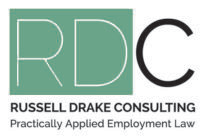Since returning from the COVID-19 Government enforced lockdown, we have seen a substantial increase in the number of Personal Grievance claims being raised by employees, the most common being from those who have been terminated on the basis of redundancy or from those still retained within their employment. These claims being associated with wage arrears payments.
The majority of these wage arrear claims are aligned to wage reductions associated with the lockdown period, particularly where employees had their usual income reduced to either the government $585.80 wage subsidy payment amount or to 80% or less than of their usual earnings.
Since the lockdown period there have been two significant Determinations released by the Employment Relations Authority in relation to wage reductions. Both of these Determinations have ruled in favour of the employees with the Authority deeming that the employers process failed to evidence sufficient consent from the employee for the wage reduction. In both cases the employer parties were required to repay the employees back to 100% of their usual earnings. As a result of these Determinations we have seen an influx in Personal Grievances arise associated with similar claims.
Both Unions and Employee Advocate organisations have therefore seen this as an ideal opportunity to raise claims even where justification is not evident. Already we have had several mediations for clients associated with such claims where there has been clear evidence that the employee has accepted in some form (i.e. an email response) an agreement to a wage reduction. This has however not stopped the employee advocate raising the claim and seeking repayments. This is a trend that we are expecting to see continue for some time and we are already aware of employers who, without seeking representation, have made repayments where these may not be entirely justified.
If you therefore receive a claim from an employee in relation to the wage reductions aligned to COVID-19 period, please ensure that you seek immediate advice regarding this before responding to those claims.
Obviously, evidence of some form of acceptance by the employee will be required, this could comprise of a number of different types of responses from the employee. There is also a principle in Employment Law associated with the provisions of Good Faith, that states that an employee should not mislead or deceive an employer into believing that something has been accepted if it has not been. This implies that, if the employee willingly accepted the reduction at the time, they may be in breach of their Good Faith obligations to now state that it was not agreed.
We are happy to provide advice and support to you if you are a recipient of such a claim.

